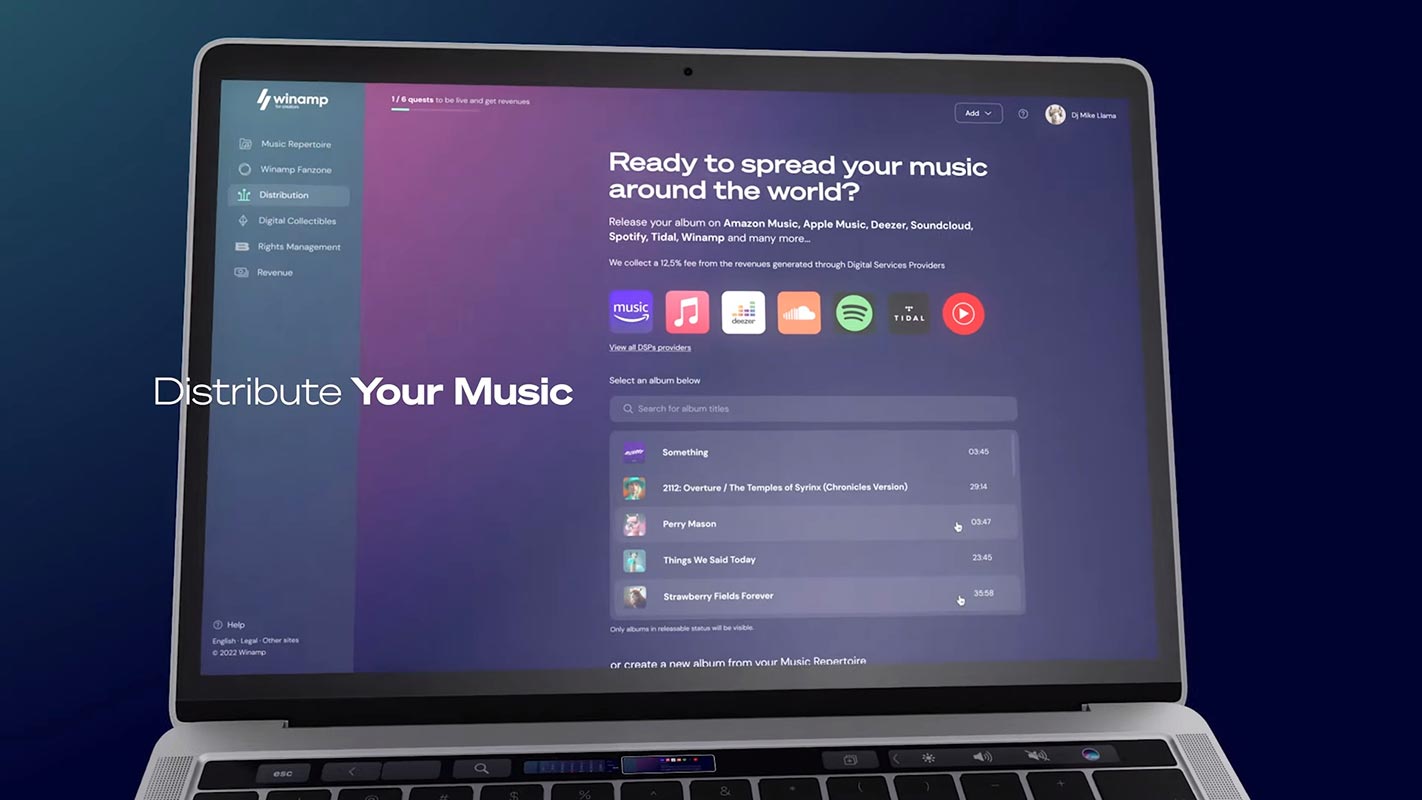Winamp was your preferred music player for those MP3s you downloaded from Napster or ripped from CDs. Today, streaming platforms like Spotify and Apple Music dominate the scene. However, Winamp is planning a significant comeback, aiming to transform from a nostalgic icon to a leading music player in 2024. This resurgence has led to widespread speculation, especially regarding whether Winamp will go open source. The excitement and rumors surrounding its return highlight the enduring impact Winamp had on a generation of music lovers and the potential it holds to captivate a new audience in the digital age.
What is Winamp?
Winamp, launched by Nullsoft in 1997, revolutionized how we listen to digital music. Its customizable skins and powerful equalizer quickly became a beloved tool for music enthusiasts. By the early 2000s, Winamp was a household name, synonymous with MP3 playback.
Winamp’s Decline and Nostalgia
However, Winamp’s popularity waned as new music players and streaming services emerged. Acquisition by AOL and later by Radionomy couldn’t save it from its decline. Despite this, Winamp maintained a loyal fanbase, kept alive by nostalgia and the occasional update.
The Current State of Music Players
Today, streaming services dominate the music industry. Platforms like Spotify, Apple Music, and Amazon Music have shifted the focus from local file libraries to vast online catalogs. The convenience of streaming has made traditional music players seem obsolete.
Winamp’s Comeback Strategy
In a bold move, Winamp announced its plans to return in 2024. This revival isn’t just about relaunching the old player; it’s about reimagining it for a new era. The aim is to blend the nostalgia of Winamp with the functionalities required by modern users.
Is Winamp Open Source?
Here’s where the confusion begins. Despite rumors, Winamp is not going open source. The Llama Group, Winamp’s current owner, has clarified that the software will remain under their control. CEO Alexandre Saboundjian stated, “Winamp will remain the owner of the software and will decide on the innovations made in the official version.”
What is FreeLLama?
Instead of true open source, Winamp is introducing FreeLLama. This initiative allows for some level of developer interaction but retains corporate control. FreeLLama will enable developers to suggest innovations and modifications, yet the ultimate decisions will rest with the Llama Group.
Corporate Control and Innovation
The decision to keep Winamp under corporate control means that while developers can contribute, the Llama Group will oversee and regulate these contributions. This approach ensures a cohesive and stable product but limits the freedom typically associated with open-source projects.
Developer Involvement
For developers, FreeLLama presents both opportunities and challenges. On one hand, they can influence the evolution of Winamp. On the other hand, they must operate within Llama Group’s constraints, which may stifle some creative freedom.
Comparing Open Source and FreeLLama
To understand the implications, let’s compare open-source software and FreeLLama. Open-source software is freely available for anyone to modify and distribute. While FreeLLama offers some collaborative possibilities, it does not provide the same level of freedom. The Llama Group’s oversight means FreeLLama cannot be classified as open source.
Impact on Users
What does this mean for users? For long-time Winamp fans, the revival under the FreeLLama model offers a chance to see their favorite player updated and improved. However, the restricted nature of FreeLLama may limit the innovation some users were hoping for.
Winamp’s Future
Predicting Winamp’s future is tricky. While the nostalgia factor is strong, the player must offer compelling features to compete with modern streaming services. The blend of old and new will be crucial to its success.
Community Reaction
The Winamp community has been buzzing with mixed reactions. Some are excited about the revival, while others are skeptical of the FreeLLama model. The community’s expectations are high; only time will tell if Winamp can meet them.
Technological Considerations
Modernizing Winamp involves ensuring compatibility with today’s devices and operating systems. The Llama Group must innovate without compromising the essence of what made Winamp special. Balancing new features with the classic Winamp experience will be key.
FAQs
Is Winamp going open source?
No, Winamp is not going open source. The Llama Group retains control over the software.
What is FreeLLama?
FreeLLama is an initiative by Winamp that allows developer contributions while maintaining corporate control.
How does FreeLLama differ from open-source software?
FreeLLama permits developer input but does not offer the same freedom and control as open-source software, as the Llama Group oversees all changes.
What are the benefits of Winamp’s revival?
The revival aims to blend nostalgia with modern features, offering a unique music player experience.
Will Winamp be able to compete with modern streaming services?
Success depends on how well Winamp integrates new features while retaining its classic charm, appealing to old fans and new users.
Wrap Up
Winamp’s return is a captivating development in the realm of music players, stirring excitement and debate among old fans and new users. Though it won’t be entirely open source, the introduction of FreeLLama presents a compromise by allowing developer contributions while maintaining corporate oversight. This balanced approach leaves questions about whether it will meet the expectations of developers who crave freedom and users who desire innovation.
Nonetheless, the buzz surrounding Winamp’s revival highlights the deep-seated nostalgia and affection that this iconic software evokes. It serves as a reminder of its significant impact on the music-listening habits of a generation. As we await the official launch in 2024, one thing is certain: Winamp’s legacy continues to resonate, holding the promise of blending its classic charm with modern advancements to redefine our music player experiences.

Selva Ganesh is the Chief Editor of this Blog. He is a Computer Science Engineer, An experienced Android Developer, Professional Blogger with 8+ years in the field. He completed courses about Google News Initiative. He runs Android Infotech which offers Problem Solving Articles around the globe.



Leave a Reply